Andy Fuchs had a childhood that would make any guitarist green with envy: he grew up in a music shop during the halcyon days of classic rock.
Yet despite his upbringing, Andy says the family business didn’t net him a roomful of gear.
“Visions of Les Pauls and Marshalls being given to me for Christmas are foreign to me,” he said.
But what the family business did provide was an environment for Andy to become saturated in music and gain an on-the-job education in gear. When asked about a specific moment he could remember from his days growing up in the shop, Andy recalled an experience he considered transcendent.
“I was handed a guitar to hold onto while someone went to answer a phone or take care of a customer, and in my hands was a Danelectro Convertible with the wood grain top, plugged into an Ampeg Gemini,” he said. “I’ll never forget it; the sound of the reverb just washed over me and I just sat there like ‘holy shit!’ There was just some kind of electricity man, you know?”
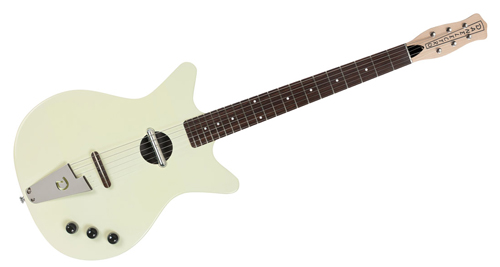
Danelectro Convertible
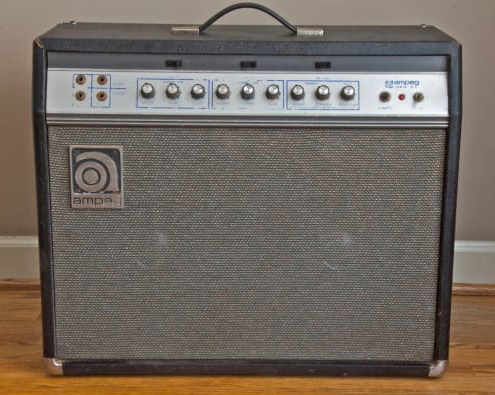
Ampeg Gemini
Following that experience, Andy stuck with music, from learning Beatles songs on a plastic guitar to playing flute in a high school band that had some heavy Jethro Tull influences. Andy played professionally for about 25 years, and still frequents open mics and blues jams today.
On the technical side, Andy gained a wealth of knowledge from helping out at a friend of his father’s TV repair shop, learning the ins and outs of TVs, which were still prominently built with cathode ray tubes. As a teenager, he took electronic technology classes at Manhattan’s RCA Institute and did some freelance amp and guitar repair work for a nearby guitar shop.
This education in electronics, along with the immersion in music and gear his parents and their shop provided, served as the foundation Andy would come to build his career on.
The House of Fuchs
Building amps wasn’t part of Andy’s first career. After college, Andy did work on amps, helping with repairs for a few music stores in the area and playing gigs with a couple of local bands. But after Andy and his wife, Annette, realized he was putting in too much work for too little return, he would take on a new path. He interviewed for and landed a job selling small electronics like fire alarms and card access systems.
“It wasn’t really a lot of effort because to me these things were just tinker toys; they were like dominoes,” Andy said. “It just came easily to me for whatever reason. So technical sales was a cool place for me to make a decent living.”
And the job paid off — Andy and Annette were able to buy a house and raise a family. Andy kept up with gigging during that time, and, now in his early 40s, began to tinker with building amps again.
“I would pick up a Fender Bassman, which at the time you could get for like $150 or $200 bucks,” he said. “I would gut them and turn them into my own little overdrive amps which I would take to an open mic or a blues jam and I’d end up selling. Somebody would say ‘that thing sounds great, where can I get one?’ [And I would say]’You wanna buy this one?'”
Andy began to notice a trend in his work-life balance: he loved to spend time working on amps and was getting a great response from the handful of players who tried them. At the same time, his sales job was really starting to wear on him. Around that time, Andy’s father was diagnosed with ALS, which also shifted his priorities.
“Feeding your father his dinners gives you a lot of focus on what’s important in the world,” Andy said. “I decided to try and build this business up so I could do my own thing, be creative, and build amps and enjoy being a business person, not being tied to a company and not having to answer to people.”
And thus, Fuchs Audio was born in the late ’90s. The whole operation was run in the Fuchs home, and it would grow into a neighborhood business: Andy hired a local housewife to do everything from answer phones and write checks, to stuff circuit boards. That trend that emerged earlier picked up steam: the amp business was growing, the Fuchs had some money set aside in savings, and Andy’s job in sales was growing more and more miserable by the day.
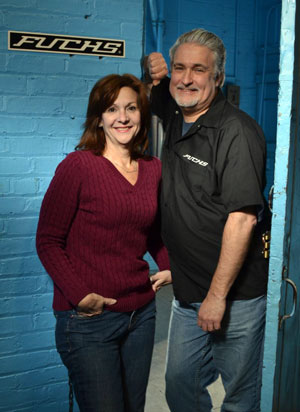
Andy and Annette Fuchs
“So I came home and said to my wife, ‘guess what honey? We’re gonna try this amplifier thing full-time,'” Andy said.
The business would grow enough that in 2002, production moved from the basement to a 2,000 sq ft. commercial space. Even as production increaased, Andy kept his employees close: both his son and daughter have worked there, and they’ve brought friends and significant others on board, too.
“My daughter was a beast stuffing circuit boards and she’s really good with small intricate things which is how she ended up being a dental hygienist,” Andy said. “My son while going to college worked here doing everything. He would do packing and shipping, he’d sweep the floor, he’d answer the phone, he’d take out the garbage, he would mechanically assemble amps — he was a beast.”
Fuchs Audio made its name on the ODS, or Overdrive Supreme. With a sound inspired by the now-mythic Dumble Overdrive Special, the Fuchs ODS has won over its fair share of guitar luminaries and carved its place in the high-end amp market.
Following the success of the ODS, Fuchs Audio’s amp lineup would continue to grow and now holds amps for any type of player, from high-headroom pedal platforms like the Clean Machine to high-gain rockers like the Mantis. Fuchs even developed its Casino line of heads and combos as a more budget-friendly version of its popular ODS amps.
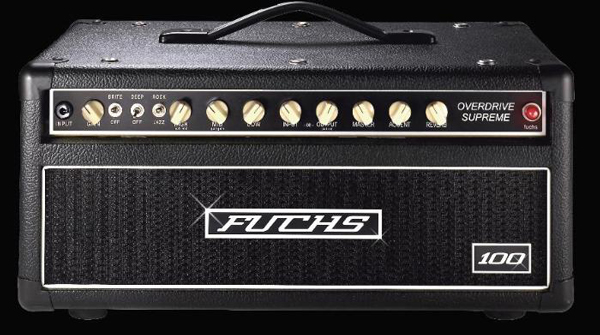
Fuchs Overdrive Supreme 100-watt head
Fuchs’ current headquarters is a 5,000 sq ft. space in Clifton, NJ. It’s got a showroom that’s as big as their old production facility. Still, Andy maintains a small, close-knit team of about six employees. You could even make the argument that Andy’s wife, Annette is more integral to the Fuchs than he is.
“She’s got a sign on her desk that says ‘I’m the boss and he works for me,'” Andy said. “She runs the show and that’s good because it lets me do engineering.”
Annette handles all the accounts, cash flow and parts ordering for Fuchs. That last role in particular, is where her background in electrical component sales comes in handy.
“It’s great because I can say, ‘honey, we need more diodes,’ and she knows what I’m talking about!” Andy said.
Despite his prolific output and constant tinkering, Andy is the first to admit he is standing on the shoulders of giants. In fact, he says, even the landmark amplifiers share a heritage — the Marshall JTM45 is a Fender Bassman taken across the Atlantic and modified. The Boogie Mark I started as the lovechild of a Bassman and Princeton.
“We’re all still manifesting the same DNA,” he said. “We’re just spicing it up a little differently.”
The Fuchs Spice Blend
So what is the spice blend or “secret sauce” that sets Fuchs apart?
Early on, Andy worked with a friend he called a “brilliant designer” of tube electronics and circuits. The friend had an idea for a new amp circuit, one that gave the player control over variable gain structures, clipping modes and more — a tone geek’s playground. Andy was psyched.
“I said ‘oh man I’m gonna build this thing and we’re gonna conquer the world with something really brilliant and new,'” he explained.
The amp was great on paper, but upon plugging in and trying it out, Andy conceded that something just didn’t feel right. Though the amp never made it to production, it yielded a major cornerstone of Fuchs’ philosophy: getting a great sound out of an amp should be easy. A longtime friend, Dennis Kager of Ampeg would inform Andy: people have an expectation of what will happen when they turn an amp knob; it’s best to meet their expectations.
“We’re in the age of computers, where you can buy a program to design a circuit board for you. And you can input all your values and give it your circuit diagram and everything. And what you’ll get is a board that looks beautiful: all the resistors are in perfectly straight rows and all the capacitors face in one direction. It looks like a military cemetery,” he said. “That’s because the computer laid it all out, but that doesn’t necessarily mean that it’s the best way for a board to be laid out.”
So, no, you won’t find an immaculate circuit board in Fuchs amps or Plush pedals. But you won’t necessarily find hand wired point-to-point circuitry, either. That’s because Andy has his own way. He hand-wires his prototype amps and uses circuit boards for production models. But he injects into these boards a soul, a thoughtfulness that’s visible. It’s in the details, like the thickness of both the copper wires and in the traces.
- Control panel assemblies
- Cabinet chassis
“When you make a circuit board, a circuit board is covered in copper 100 percent. And you etch away where you don’t want copper to be. So that copper’s there anyway and if I’ve got space between two traces and it’s OK if those traces are close to one another, I’m gonna make them fatter than they have to be, because I really believe that they’ll be quieter, they’ll sound better, they’ll be less prone to failing and I think that it improves the quality of the product.”
Fuchs amps have a best-of-both-worlds approach to circuit boards. They deliver the consistency in sound and quality assurance that circuit boards offer, and are built with the kind of attention to detail and quality of components that boutique amp makers make their names on.
Of course, having each amp tested by the ear of an expert is nice, too. Andy tests every amp he designs with the same guitar — a no-frills 1980s Gibson The Paul model.
“The true test to me is plugging it in and strumming a chord and if the note sustains and if the note turns around from sustain to oscillation, or you know how it reacts dynamically to a real guitar. And being that I use the same guitar pretty much all day, I know when an amp sounds right or wrong because of what I’m putting through it,” Andy explained.
Acquisition of Plush
As the economy entered a recession around 2008, Andy knew Fuchs Audio would have to adapt. He feared that the market for boutique amps would dry up, but noticed that the pedal market seemed more steady.
He would start with a few overdrive pedals, like the Cream, and Plush Drive. From there came tube-based delays, reverbs, a compressor, bass effects and more. Soon, Andy had a roster of about 20 pedals. And like amps, Andy sees pedals as an opportunity to re-interpret the sounds of originals.
“You can take a time-honored design that people like and you can say ‘I could do that better: more gain, different tonality, fix things that people found wrong with them,” he said.
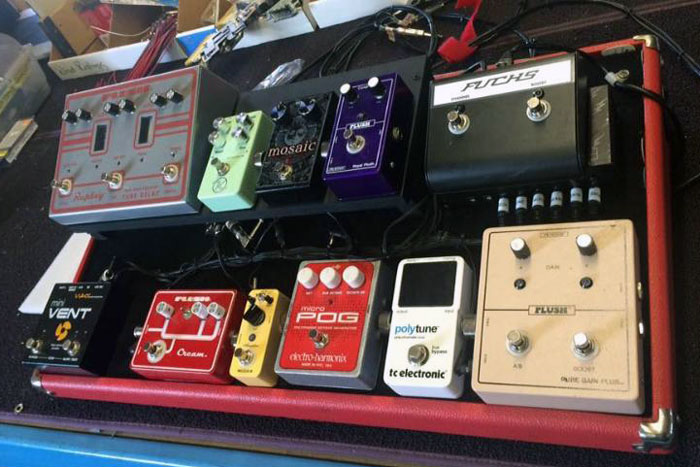
Andy Fuchs’ pedalboard
Andy wanted his pedals to have their own identity apart from his Fuchs amp line. He wanted to give them a new name and he would do so by reclaiming an old one. As a kid, Andy once visited the Plush Amps headquarters in Manhattan, when his father needed an amp repaired.
“I remember the owner was a guy named Mr. Lipski and he came over with his cigar: ‘you know, someday you should learn about this stuff, you could get a job here. I would hire you; you seem like a nice kid,’ And ironically I ended up in the music field and years later, Plush had gone out of business and the brand was available,” Andy said. “I always thought it was kind of a cute logo and a cute brand so I bought the trademark. I filed for it and nobody opposed me, so I became Plush.”
Andy’s proudest moment from the Plush line came from the response of one of his friends and contemporaries. After receiving a chorus pedal from Robert Keeley, Andy sent him his Cream overdrive, along with a tongue-in-cheek note: “you only wish your distortion pedal sounded as good as mine.”
“He called me up and said I’ve got to hand it to you — this is one damn nice distortion pedal. I’d have no problem living with this pedal on my board,” Andy said.
Today, the Plush line has grown to over 20 pedals, including overdrives delays, modulation and bass effects. They’ve gained a few fans in addition to Mr. Keeley, like Joe Bonamassa and Bootsy Collins and Warren Hayes, among others.
Those endorsements are even more impressive considering how Fuchs Audio is still so relatively new to the amp and pedal business. And though the company has grown and greatly expanded its product line, Andy is proud each Fuchs amp and Plush pedal is still built by a small team of close friends and family.
“We’re lucky in a sense, and we worked for it,” he said of Fuchs Audio’s success. “In the time that we’ve been in business, now we’re at 17, 18 years of doing this, which amazes me as much as anyone. Sometimes I say my god, I’m a 17-year overnight sensation!”

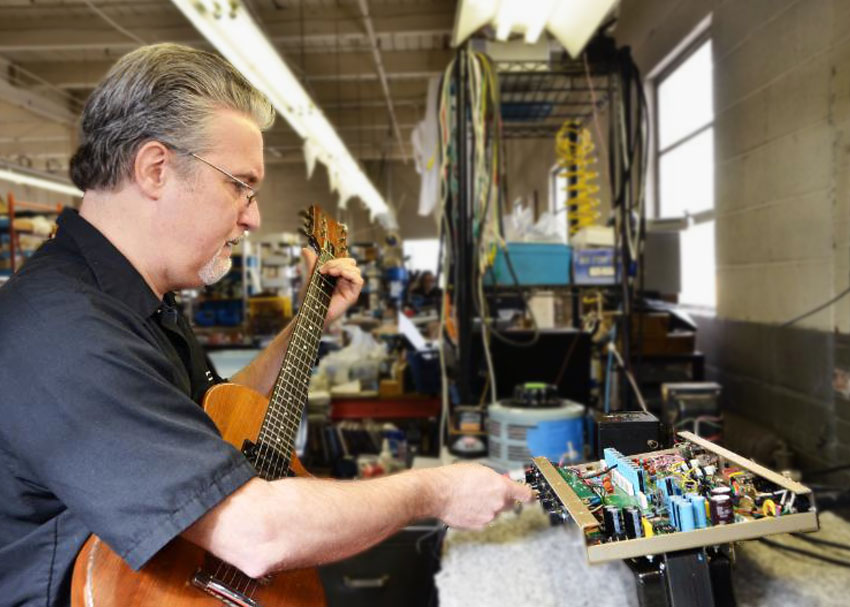
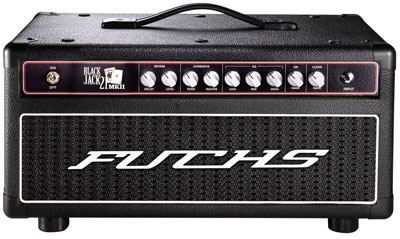
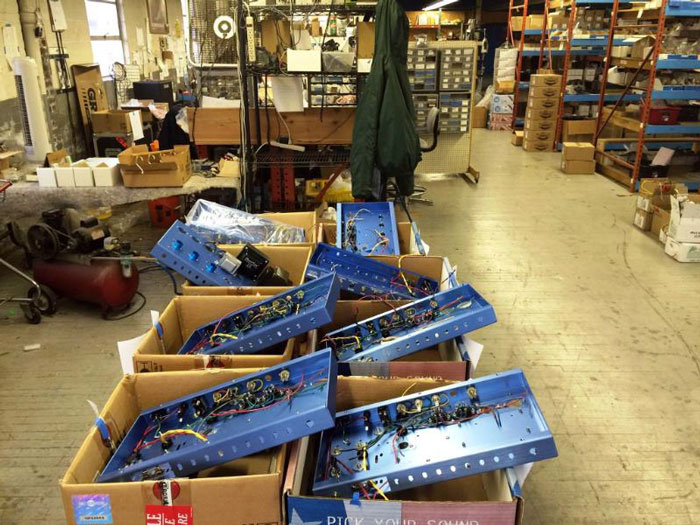
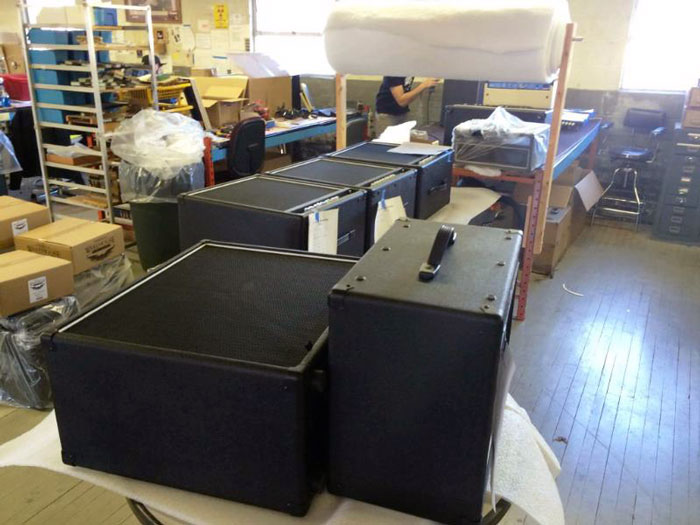
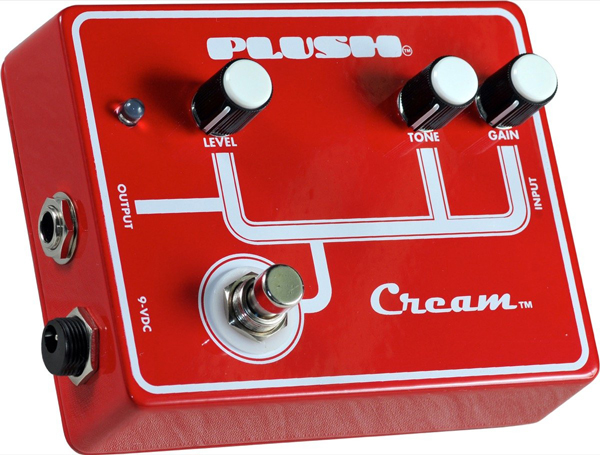


Leave a Reply